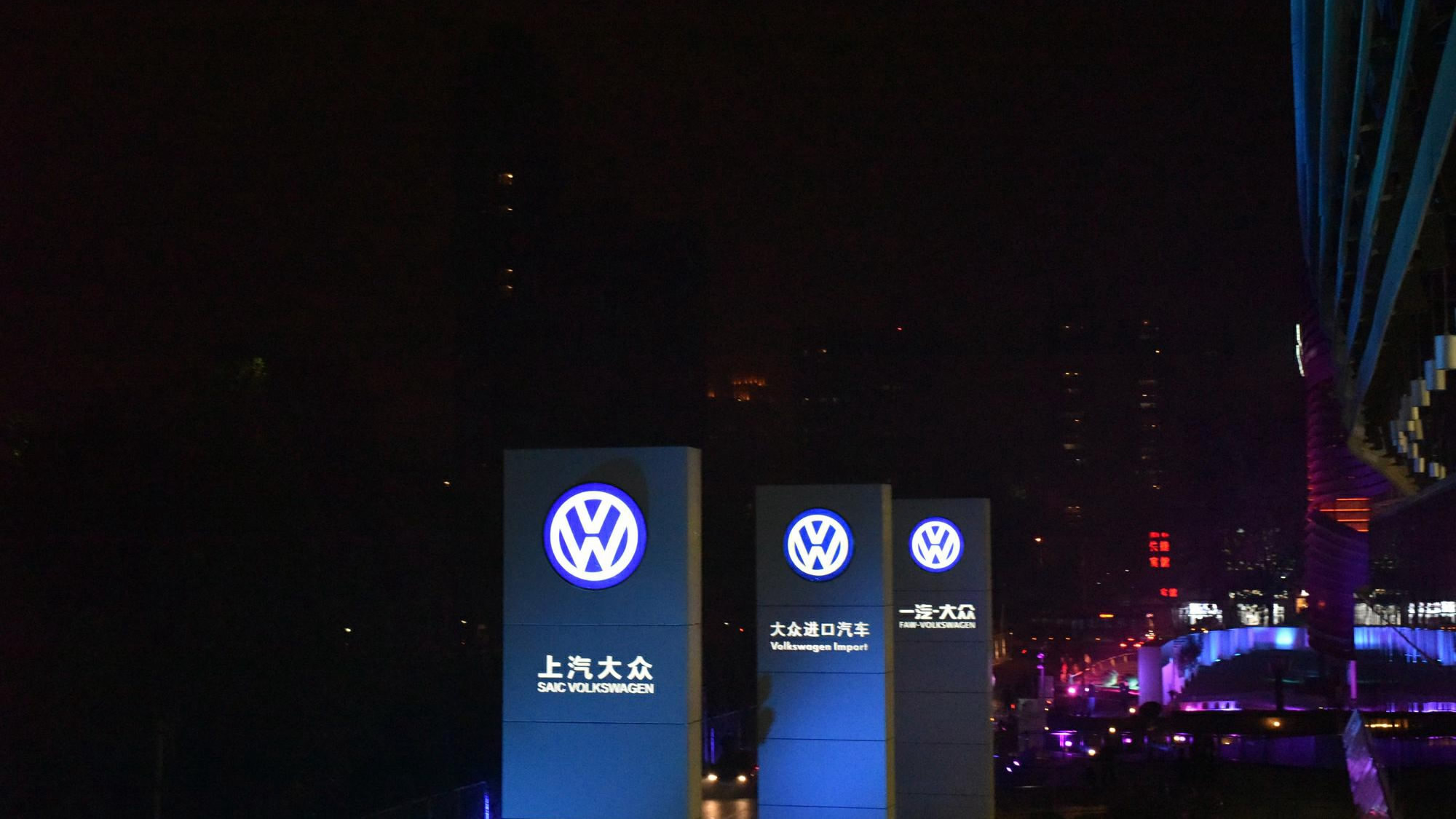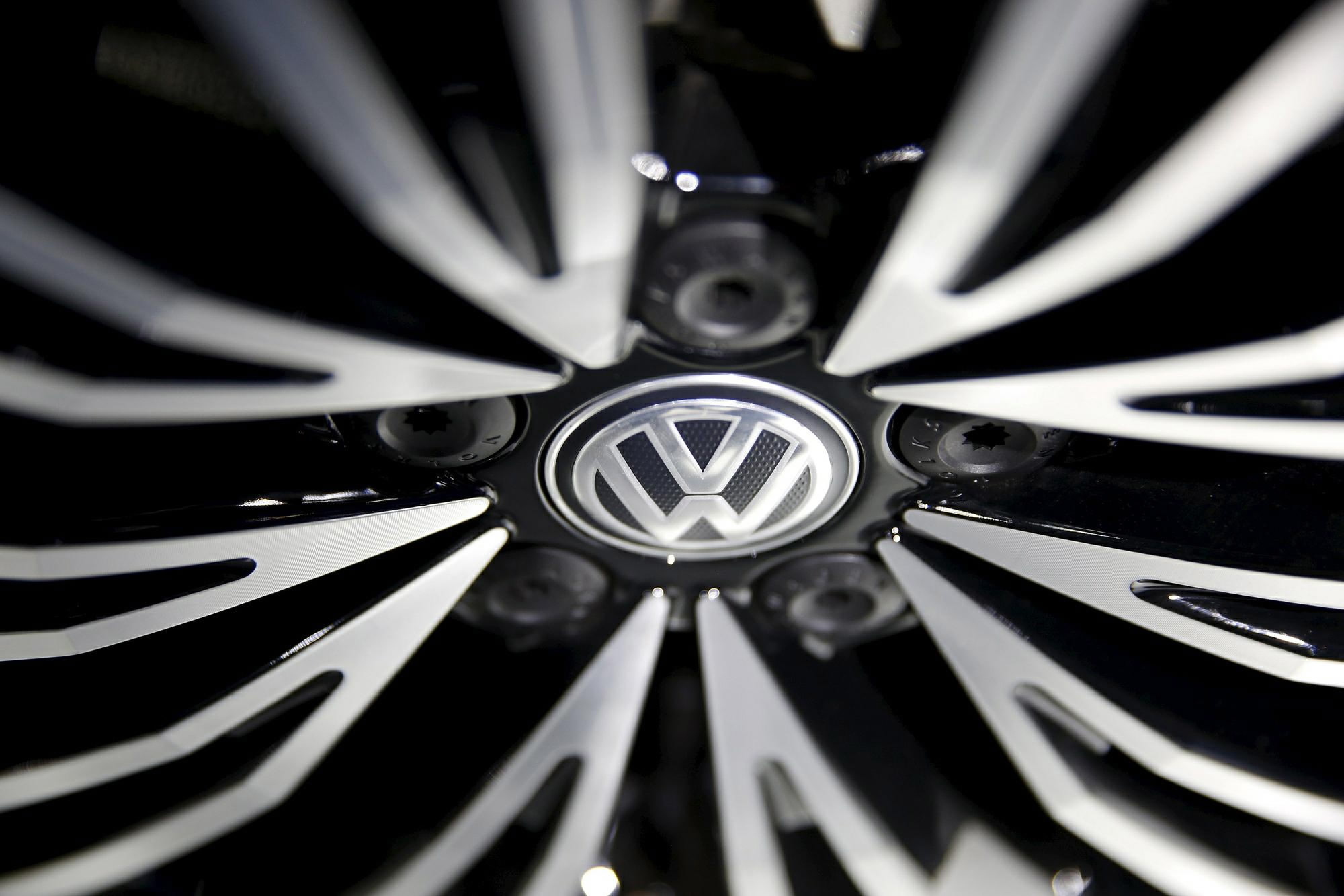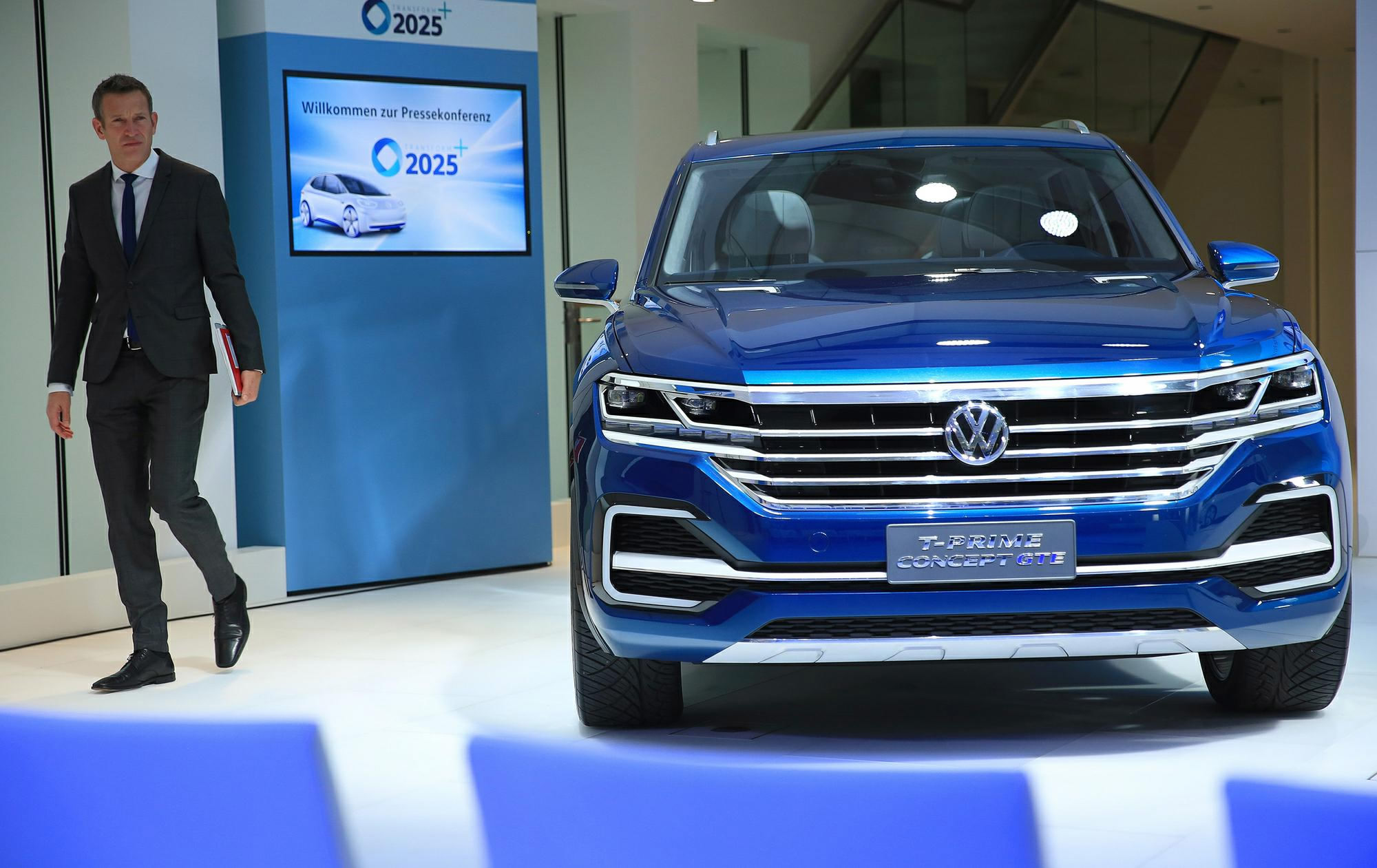
Business
17:42, 08-Jan-2017
Year’s start setback: Volkswagen to recall around 50,000 cars in China
Updated
10:32, 28-Jun-2018

Volkswagen seems to be off to a bumpy start this year in China. The German giant is set to recall almost 50,000 vehicles over brake glitches from the market that has been mainly driving the scandal-struck automaker’s growth.
The recall involves 49,480 cars with brake design defects that affect their cruise control systems, according to China’s General Administration of Quality Supervision, Inspection and Quarantine (ASDIQ), the country’s quality watchdog,
Over 80 percent of the cars are imported Beetles manufactured between July 1, 2012 and August 2, 2015. The remaining vehicles are imported Golf Variants produced between July 1, 2012 and July 6, 2013.

A Volkswagen sign is seen on wheel of a car presented during the Auto China 2016 auto show in Beijing on April 25, 2016. /CFP Photo
A Volkswagen sign is seen on wheel of a car presented during the Auto China 2016 auto show in Beijing on April 25, 2016. /CFP Photo
ASDIQ warned that faulty noise filters on brake boosters may lead to braking malfunction after cruising for long periods of time, adding that the issue created a "hidden safety risk."
The recall will begin in February.
Volkswagen China has asked car owners to stop using the cruise control system, and notified authorized dealers to fix the brake boosters for car models involved for free.
China is the single largest market for the Wolfsburg-based automaker, accounting for around 38 percent of the net vehicle deliveries for the company, according to Trefis, a Boston-based data analysis service, and offsetting Volkswagen’s weak performance in Europe and the US in the wake of the “dieselgate” scandal in 2015.
The automaker’s sales in China increased 12 percent in the first 11 months of 2016 from a year earlier, while deliveries in Germany edged up 0.4 percent during the same period.
In the US, where the scandal first came to light, sales dipped by 4.5 percent.
In November, China contributed to 42 percent of the company’s global sales, overtaking Europe and fueling hopes that the world’s largest car market could help Volkswagen’s business pick up speed in 2017.
The company has benefited from China’s efforts to tackle pollution, and has been investing in industry segments that are in line with the country’s auto trends.
As China wages a war on air pollution and mobilizes resources to cut car emissions, the government has introduced subsidy programs to encourage new-energy cars and untangled vehicle registration procedures for customers who buy electric vehicles.
Volkswagen has announced plans to introduce over a dozen new-energy cars within five years in the country, and is focused on investing in new sports utility vehicles (SUVs) and plug-in models in China.

The Volkswagen AG (VW) logo sits on the grill of a VW T Prime concept hybrid sports utility vehicle (SUV) as the automaker announces the 'VW 2025' strategy plan, at the company's headquarters in Wolfsburg, Germany, on November 22, 2016. /CFP Photo
The Volkswagen AG (VW) logo sits on the grill of a VW T Prime concept hybrid sports utility vehicle (SUV) as the automaker announces the 'VW 2025' strategy plan, at the company's headquarters in Wolfsburg, Germany, on November 22, 2016. /CFP Photo
Temporary tax breaks offered by China for cars with engines of 1.6 liters or less since October 2015 also benefited the German giant in 2016.
Volkswagen’s image was tainted after the US Environmental Protection Agency announced in September 2015 that the automaker had installed cheating software to dupe emission tests. The discovery led to several criminal charges, tumbling stock prices, and the resignation of the then-CEO Martin Winterkorn.
Eleven million cars are thought to have been tampered with.
Volkswagen recalled 1,950 vehicles, mainly imported Tiguan models, equipped with the defeat device from the Chinese market, and offered its “sincerest apologies” to its customers.

SITEMAP
Copyright © 2018 CGTN. Beijing ICP prepared NO.16065310-3
Copyright © 2018 CGTN. Beijing ICP prepared NO.16065310-3